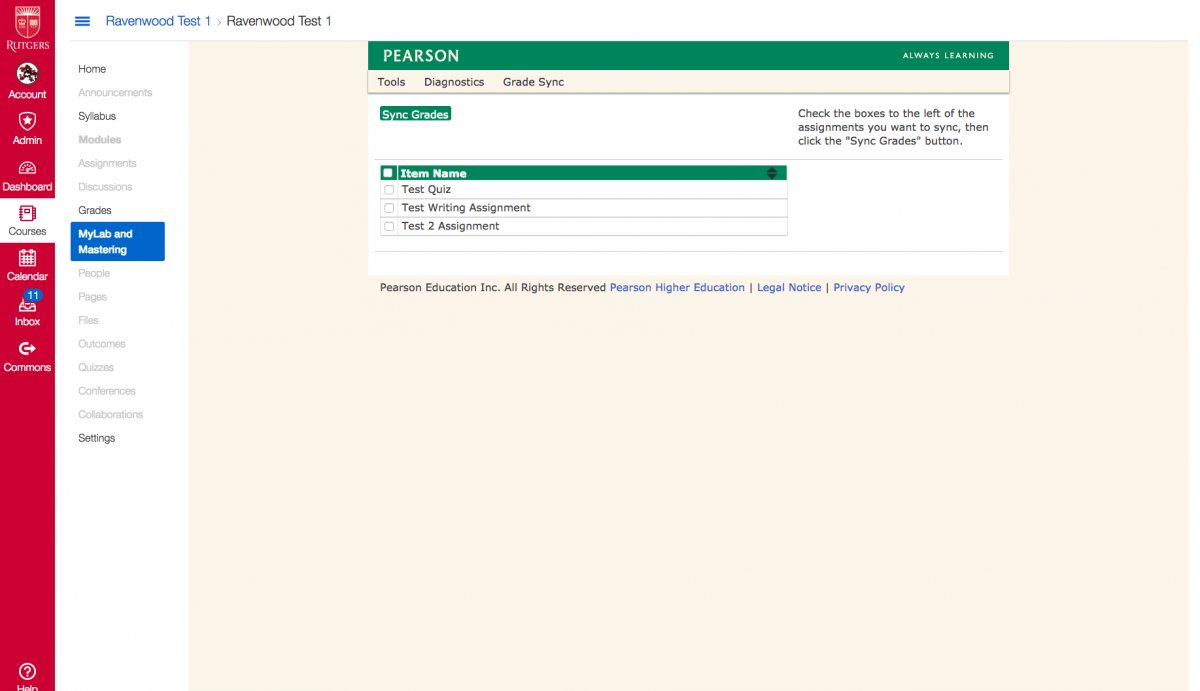
Though her role as an author is changing, Urry said she still feels her subject knowledge is appreciated.
#PEARSON EDUCATION MY LAB MASTER HOW TO#
There are still lots of details to be worked out, such as how to update materials without disrupting teaching, but Urry is hopeful the shift will result in a better experience for students - one that is more interactive, engaging and informed by the latest pedagogical research. “It’s never been the case that I only thought about the books every three years or something like that,” she said. Urry said she is constantly thinking about how the books might be improved, so she doesn’t think this will be a burden. Instead of revising textbooks every three years on a chapter-by-chapter basis, updates will now be done as and when authors think they are necessary. Students need to be more actively engaged.” “We recognized pedagogically that the way we were teaching needed to change. “We’ve been incorporating more and more digital assets into the books for some time,” said Urry.

She said the shift to digital has been “a long time coming.”
#PEARSON EDUCATION MY LAB MASTER SERIES#
Lisa Urry, professor of biology at Mills College, in California, has worked with Pearson as a co-author on the Campbell Biology textbook series since 2000. As publishers invest more heavily in digital courseware with built-in assessments and learner analytics, they have started to sign fewer textbook authors. But if other publishers follow Pearson’s lead, a digital-first future seems inevitable.įor textbook authors, the change will be significant. Brian Kibby, former president of McGraw-Hill Higher Education, predicted in 2012 that colleges and universities would be done with textbooks within the next three years. Pearson is not the first publisher to announce its intention to make the transition from analog to digital. Over 700 universities now have inclusive-access deals with the publisher, accounting for about 9 percent of its sales, said Fallon. With inclusive-access deals, where whole classes are signed up for a product and charged for access by their institution, the prices will be 30 to 40 percent lower than those above. And a fully integrated digital product, like Revel, MyLab or Mastering, will be $65 to $80,” said Fallon. You can still rent a physical textbook for $60. They will vary by discipline, but broadly speaking, the average ebook will be $40. “We will effectively have three price points. It will also push its rental program so that fewer books ever enter the secondhand market. Pearson plans to lower its prices so that fewer students are tempted to buy secondhand books. “We want students to have the best and most up-to-date content for the best price,” said Fallon. He did not share how long he anticipates the transition to fully digital first will take, but he said the company is working to make it happen “as quickly as we possibly can.” titles, 500 are currently digital first, said Fallon. “It’s been a huge investment, a big restructuring,” he said. The company’s Global Learning Platform, which has been in development for several years, will play a central role in enabling staff to update content in real time. He said that Pearson now has the technology to pull off the transition. Over half of all students now use at least one ebook as part of their studies, signaling increased acceptance of digital materials, said Fallon. The company is now in a position to "break that cycle." Print revisions were a costly and time-consuming process, he said. There is no fixed schedule for how frequently print versions will be created from the digital materials. Instead of the digital product being adapted from the print textbook, the process will be the other way around, said John Fallon, CEO of Pearson, in an interview. Print versions of the materials will still be widely available to rent, but students will be discouraged from buying them with relatively high pricing and limited availability. These digital materials will be updated on an ongoing basis - reflecting new research developments, technology breakthroughs and the latest pedagogical trends. titles will become “digital first.”įrom now on, instead of publishing new editions of print textbooks every few years, the publisher will focus its energy on its digital course materials.

Pearson, like many publishers in higher education, has long signaled its intent to move from print textbooks to digital courseware.īut today the company went farther than anyone else - announcing that all of its 1,500 U.S.


 0 kommentar(er)
0 kommentar(er)
